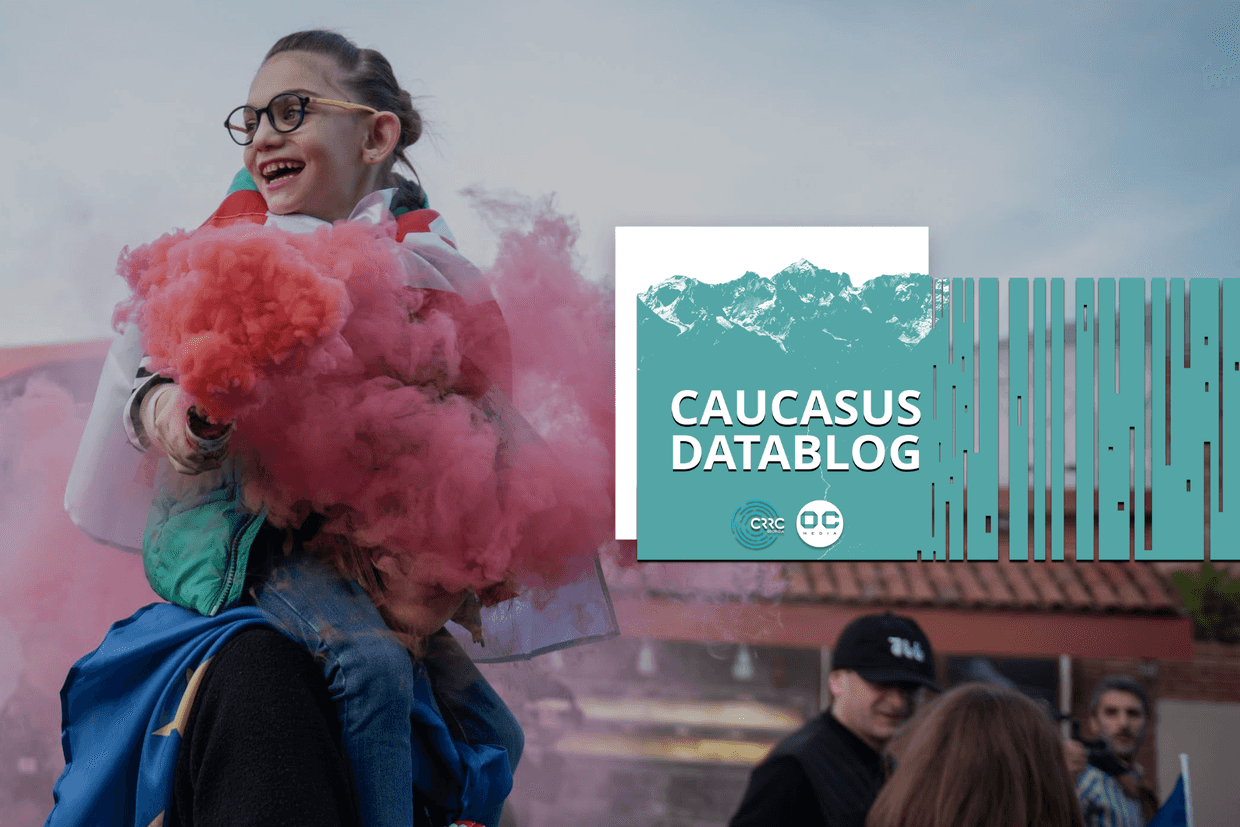
Datablog | Increasing optimism for the future in Armenia and Georgia
Armenians were generally more optimistic than Georgians, though both have seen an increase since 2017.
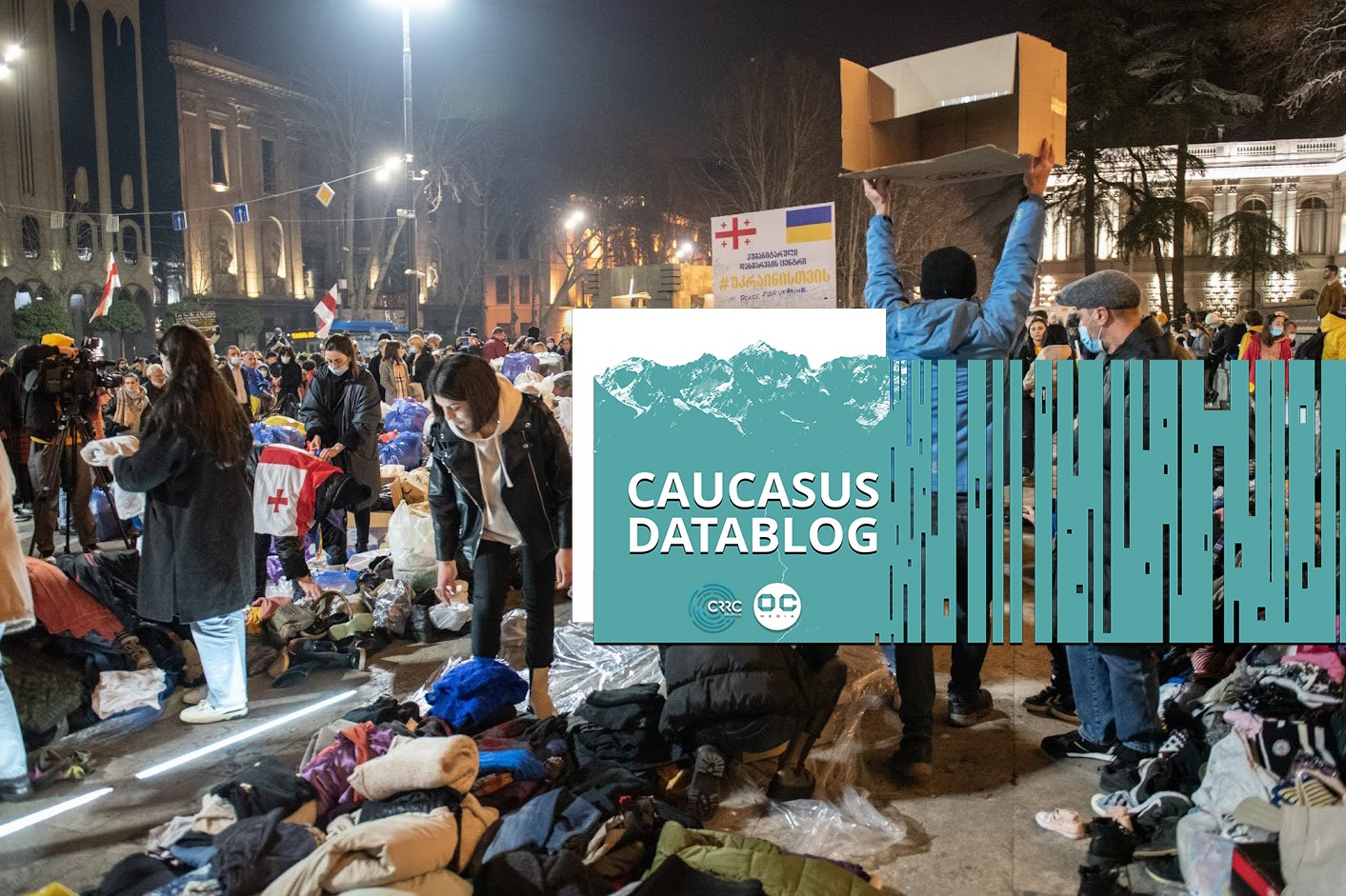
A CRRC survey shows that Georgians tend to agree that social values factor more into the making of a good citizen than political engagement.
Respondents were asked six questions relating to good citizenship. Of these markers of good citizenship, the importance of helping those worse off, following traditions, and volunteering were the most supported behaviours.
When asked about the importance of a good citizen to support people who are worse off, 97% thought it was very or rather important. When asked about the importance of following traditions, 92% thought it was very or rather important. Volunteering had the lowest consensus rate within this group, with 90% agreeing that it was very or rather important.
Behaviours generally associated with good citizenship included the importance of being critical towards the government, the opposition, and partaking in protests. Respondents who thought it very or rather important to be critical of the government and opposition did so at 70% and 68%, respectively. The least supported marker of good citizenship was protesting, at 56%.
Factoring in demographic characteristics offers the ability to see which of these markers of good citizenship has broad support across society and which are more divisive.
For the first group of questions in which there is 90% or higher agreement, models only explored whether a respondent reported that behaviour was very important or not. For the second set of attitudes, models looked at whether people felt a behaviour was important or not.
The data shows uniform support across social and demographic groups regarding supporting people who are worse off.
When it comes to following traditions, there are differences between a number of groups. Young people (18-34) were 11 percentage points less likely than those 55+ to think that it is very important for good citizens to follow traditions. Ethnic minorities were 19 percentage points more likely than ethnic Georgians to believe it very important. Those living in the capital were 15 percentage points less likely than those in urban and rural communities to think that following traditions is very important for good citizenship. Gender and employment were not associated with attitudes on this question.
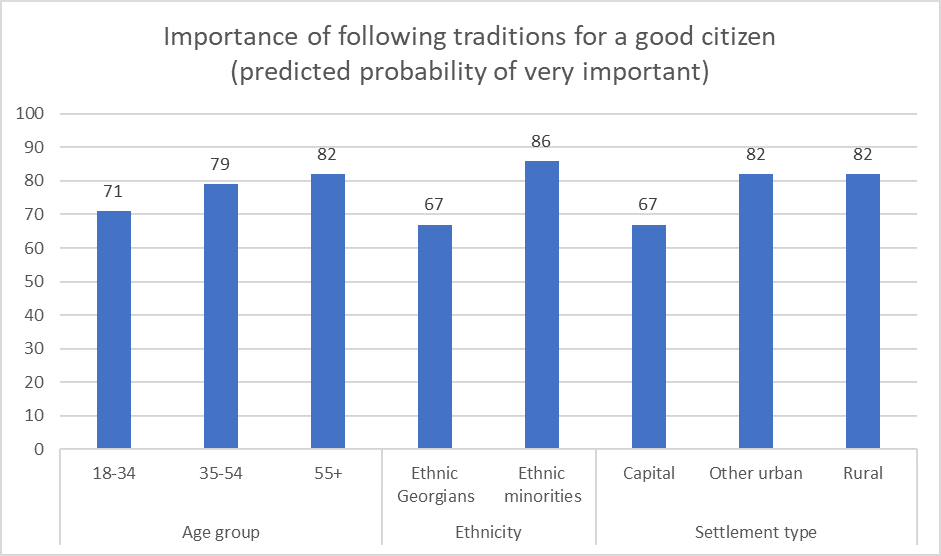
Attitudes toward volunteering also vary by ethnicity and settlement type. Ethnic Georgians were 13 percentage points less likely to view volunteering as very important to being a good citizen than ethnic minorities would.
In Tbilisi, volunteering was five percentage points less likely to be considered very important compared to other urban areas and 11 points less likely to be considered very important compared to rural areas. Age, gender, and employment did not have a significant association when controlling for other factors.
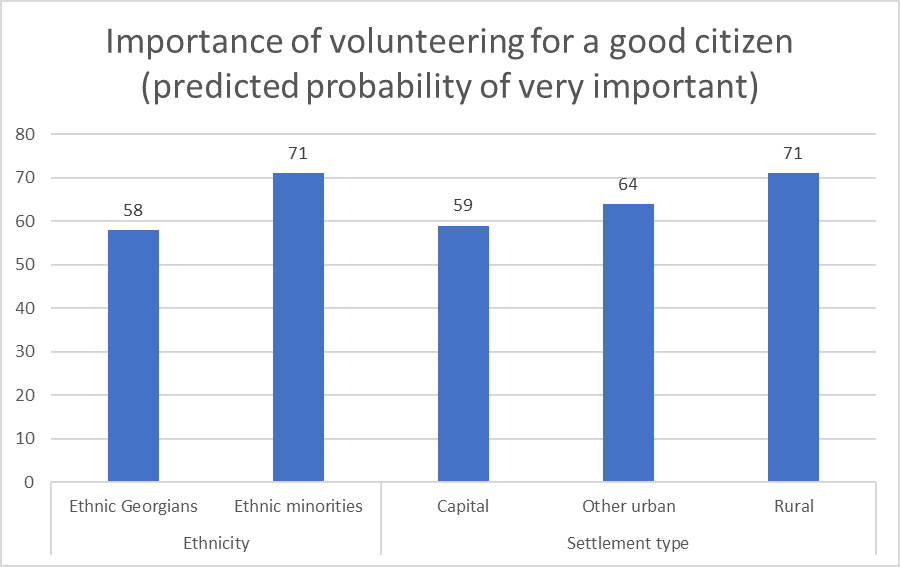
The data shows much more significant variation in terms of the importance of political behaviour for good citizenship.
With regard to being critical of the government, ethnic Georgians were 39 percentage points more likely to think that it was important compared to ethnic minorities. Those in the capital were 14 percentage points more likely than those in rural areas to think it important. Age, gender, and employment were insignificant when controlling for other factors.
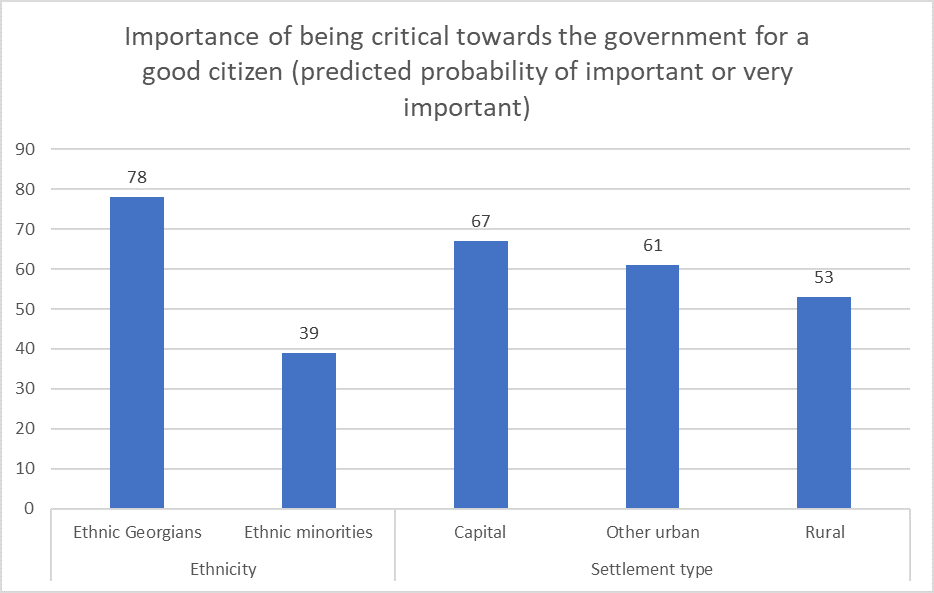
When asked about the importance of being critical towards the opposition, ethnic minorities were 30 percentage points less likely to think it was important than ethnic Georgians. Those in the capital were 11 points more likely to think it important than those in rural areas. Gender, and employment, when controlling for other factors, are not associated with attitudes on this question.
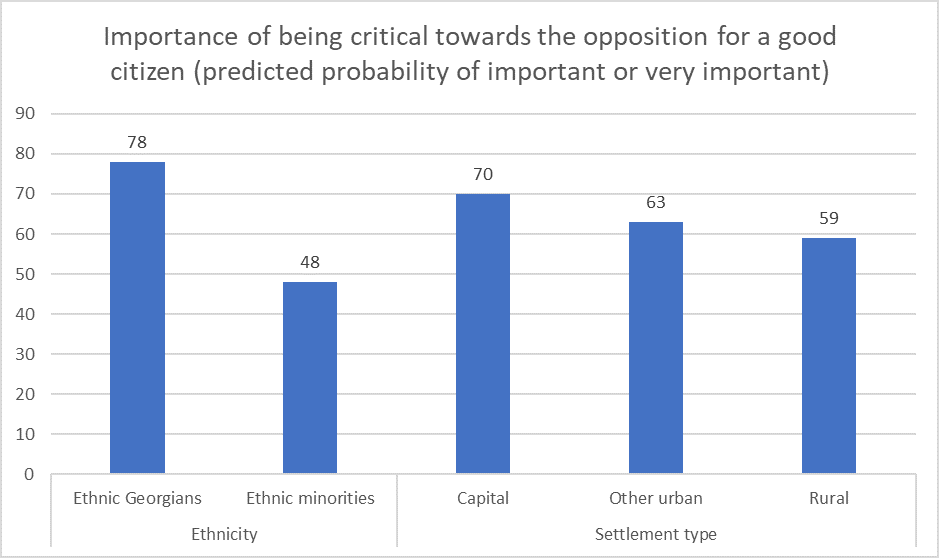
The last marker of good citizenship is participation in protests. Young people (18-34) were 13 and 10 percentage points more likely than those aged 35-54 and 55+ to view this as an important aspect of good citizenship. Ethnic Georgians were 27 percentage points more likely to think protests were important for good citizenship than ethnic minorities. There was no meaningful difference between settlements, genders, or employment statuses when controlling for other factors.
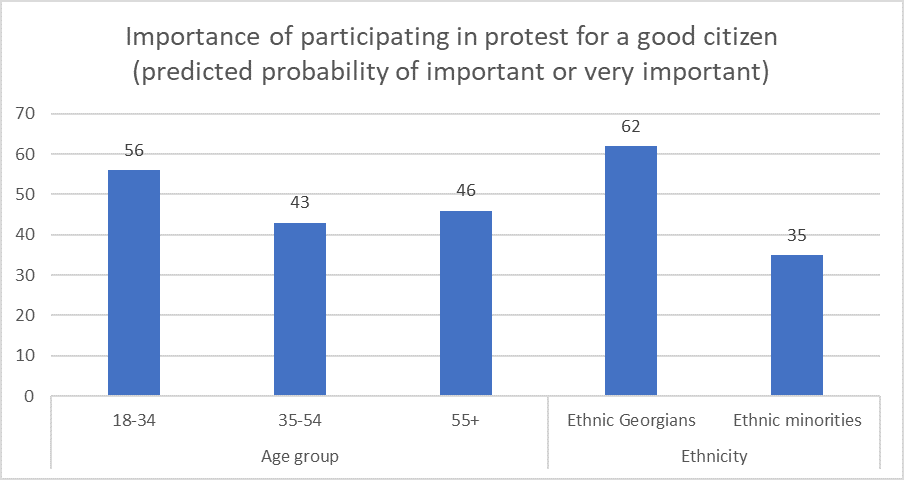
The above data shows that Georgians tend to emphasize supporting fellow citizens and following traditions rather than engaging in politics when they think about what it means to be a good citizen.
The data used in this article is available here. Charts only display statistically significant associations between variables.
The views expressed in this post are the author’s alone, and do not necessarily reflect the views of the Europe Foundation, CRRC Georgia, or any related entity.